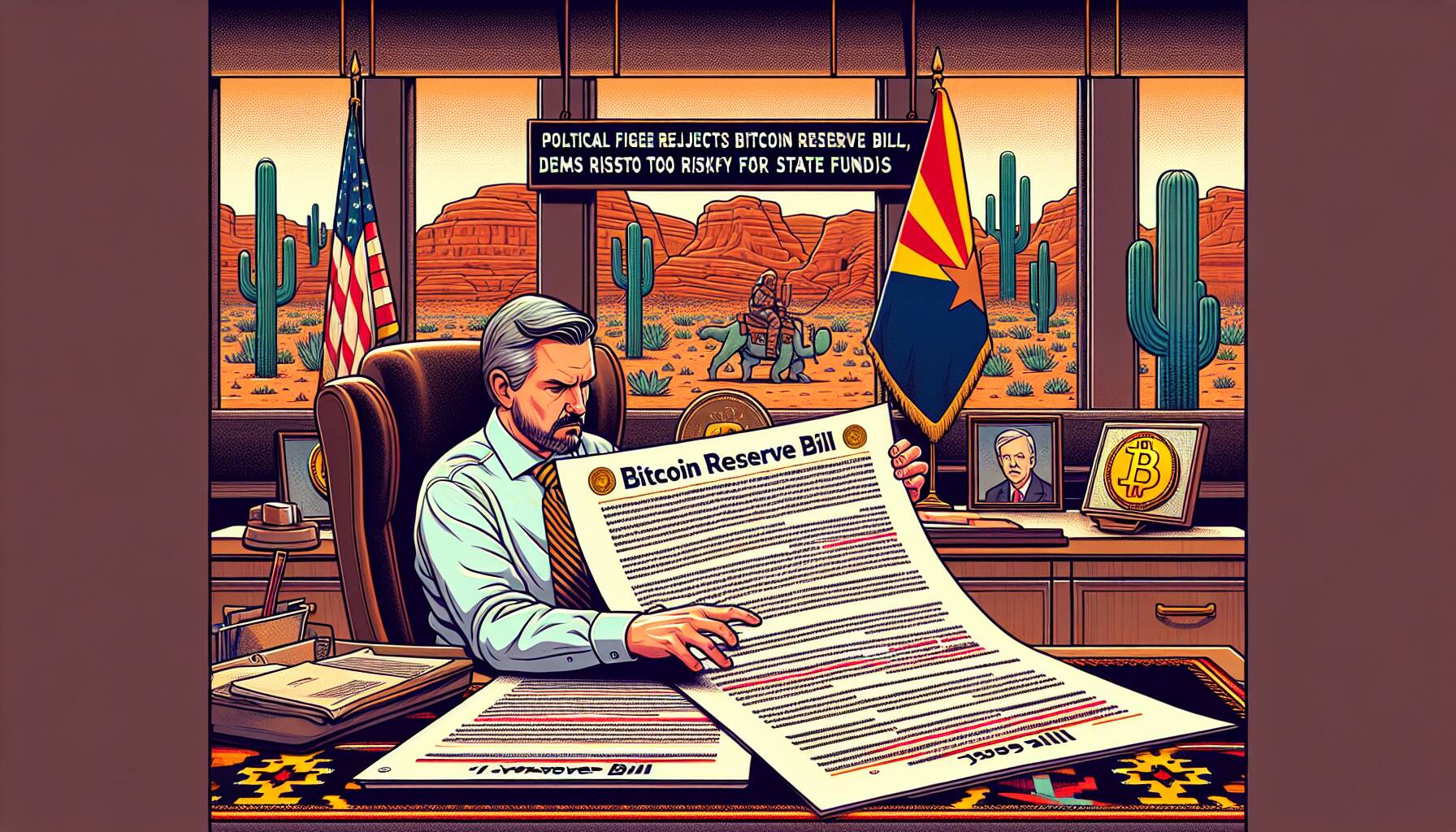In a significant move for the cryptocurrency landscape, Arizona’s governor has vetoed a pioneering bill aimed at creating a state bitcoin reserve. This legislation was set to position Arizona as a leader in the growing trend of state-level cryptocurrency initiatives. However, the governor expressed concerns about bitcoin and other digital currencies, labeling them as “untested investments.” This sentiment reflects a broader caution among policymakers regarding the volatile nature of cryptocurrencies.
The vetoed measure was part of a push by the Arizona Legislature to establish a formal state reserve of bitcoin, with advocates arguing that it could enhance the state’s financial resilience and attractiveness to tech-savvy investors. The discussions surrounding these bills have highlighted a pivotal moment where states are grappling with the implications of integrating digital assets into their financial frameworks.
As more states explore the potential of cryptocurrencies, Arizona’s decision could set a precedent for how lawmakers approach digital investments.
With other states watching closely, Arizona’s recent actions underscore the tensions between innovation and regulation in the cryptocurrency arena. While some see the potential for economic growth and technological advancement through digital currencies, others caution against the inherent risks, contributing to the ongoing debate about the future of crypto in American financial systems.

Arizona Governor Vetoes Bitcoin Reserve Bill
Recently, the governor of Arizona made headlines by vetoing a significant bitcoin reserve bill. Here are the key points surrounding this event:
- Bill Vetoed: Arizona’s governor rejected the proposal to establish a state bitcoin reserve.
- Labeling Crypto: The governor described cryptocurrency as an “untested investment.”
- Legislative Movement: The Arizona legislature had pushed for the establishment of a state bitcoin reserve.
- First-in-Nation Measure: This veto marked the first significant statewide action concerning a bitcoin reserve in the U.S.
- Public Discourse: The decision ignited conversations around state involvement in cryptocurrency and the future of digital assets.
The implications of the veto can impact readers in several ways:
- Investment Caution: The governor’s stance may lead individuals to reconsider the risks associated with investing in cryptocurrencies.
- Policy Awareness: Citizens may become more informed about how state policies influence the cryptocurrency landscape.
- Future Regulations: This veto could signal future regulatory measures that might shape the environment for digital currencies.
- Financial Literacy: The discussion surrounding the bill might encourage individuals to educate themselves on financial technologies.
“The decision reflects ongoing tension between traditional finance and emerging digital currencies.”
Arizona’s Bitcoin Reserve Bill: A Double-Edged Sword in the Crypto Landscape
Recently, Arizona’s governor made headlines by vetoing a groundbreaking bitcoin reserve bill, marking a significant moment in the ongoing discourse around cryptocurrency legislation. This decision not only illustrates the complexities and reservations surrounding crypto investments but also raises questions about the future direction of state-level engagement with digital currencies.
Competitive Advantages: On one hand, states inclined towards adopting or supporting cryptocurrencies may view Arizona’s legislative ambitions as a benchmark for innovative financial frameworks. Proponents of digital currencies can argue that having a state-backed bitcoin reserve could lead to increased economic diversification and attract tech-savvy businesses. In a country where various states are joisting to become the next tech hub, Arizona’s attempt showcases a willingness to embrace change and challenge traditional financial norms.
Competitive Disadvantages: Conversely, the governor’s veto underscores significant concerns regarding the volatility and unpredictability of cryptocurrencies. By labeling digital currencies an “untested investment,” it highlights a fear among many lawmakers about the potential financial risks associated with such volatile assets. This could deter other states from pursuing similar legislation, fearing backlash or financial disaster, which might hinder innovation in the long run.
Who Could Benefit or Face Problems: This tug-of-war could create winners and losers within the financial ecosystem. On the benefiting side, crypto advocates and innovative startups might find more fertile ground elsewhere if they are drawn to states that are imposing forward-looking policies and facilitating a favorable environment for digital currency transactions. However, traditional banks and financial institutions in Arizona may feel threatened by the shift towards digital assets, fearing obsolescence or regulatory challenges. Moreover, everyday investors in Arizona may find themselves caught in a limbo, facing difficult choices as to whether to engage in an area marked by uncertainty or sit on the sidelines while regulations evolve.
The discourse sparked by Arizona’s legislative move emphasizes the necessity for comprehensive regulatory frameworks to support cryptocurrency’s growth while safeguarding investors and the financial system. As states continue to navigate this digital frontier, the outcomes of such legislative endeavors will be closely monitored by all stakeholders in the fast-paced realm of cryptocurrency.

















